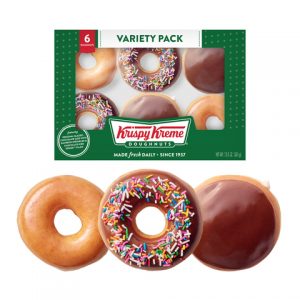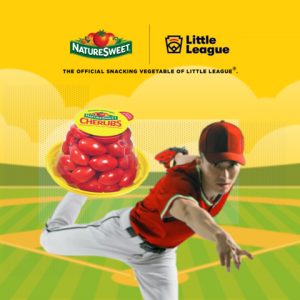A Federal Trade Commission report revealed that large market participants accelerated and distorted the negative effects associated with grocery supply chain disruptions.
The FTC’s report examined how supply chain disruptions affected competition among retailers, wholesalers and producers, as well as the impacts on consumers and businesses. Consumers felt the negative effects of supply chain disruptions in the form of skyrocketing prices for groceries and product shortages for essentials, such as toilet paper.
Notably, consumers are still facing the negative impact of the pandemic’s price hikes, as the report finds that some in the grocery retail industry seem to have used rising costs as an opportunity to further raise prices to increase their profits, which remain elevated today.
“As the pandemic illustrated, a major shock to the supply chain can have cascading effects on consumers, including the prices they pay for groceries,” said FTC Chair Lina M. Khan. “The FTC’s report examining U.S. grocery supply chains finds that dominant firms used this moment to come out ahead at the expense of their competitors and the communities they serve.”
“The study found some indications that higher prices at the grocery store, which continued after the worst of the pandemic supply chain disruptions were resolved, were not simply mirroring the higher costs retailers faced, but actually may be reflective of higher profits for those retailers,” Commissioner Rebecca Kelly Slaughter said in a statement.
“Since the study found that some aspects of the supply chain disruptions we faced during the pandemic may have been harmful to competition, the indications that profits may have increased during the same time and remain high may be further indication that consumers are not benefiting from competitive markets in the ways they should when they do their grocery shopping.”
The report recommended further research on continued high pricing.
As the report explains, supply chain disruptions did not equally impact every retailer, wholesaler or producer. Instead, smaller firms – especially smaller grocery retailers – disproportionately faced difficulties obtaining products compared to larger firms. Some larger firms were better able to protect their product supply compared to smaller competitors.
The pandemic also prompted some larger firms to consider buying manufacturing suppliers, which potentially threatens to make certain supply chains even more concentrated in the future. Taken together, the report’s findings reveal how supply chain bottlenecks can leave markets exposed to major supply chain shocks and that those shocks, in turn, can allow major firms to entrench their dominance.
The report’s findings stem from orders the FTC issued in 2021 under Section 6(b) of the FTC Act to Walmart Inc., Amazon.com, Inc., Kroger Co., C&S Wholesale Grocers, Inc., Associated Wholesale Grocers, Inc., McLane Co, Inc. Procter & Gamble Co., Tyson Foods, Inc. and Kraft Heinz Co. The findings also draw from publicly available data on industry costs and revenues.
Competitive Impacts of Supply Chain Disruptions
The report highlights several key insights regarding market structure and business conduct among grocery retailers, wholesalers, and producers, as well as their effects on consumers. These insights include:
- Grocery retailer profits rose and remain elevated: Food and beverage retailer revenues increased to more than 6 percent over total costs in 2021, higher than their most recent peak in 2015 of 5.6 percent. In the first three-quarters of 2023, retailer profits rose even more, with revenue reaching 7 percent over total costs, casting doubt on the assertions of some companies that rising prices at the grocery store are the result of retailers’ own rising costs.
- Large purchasers sought favorable supplier allocations: Some companies, most often larger ones, re-imposed strict delivery requirements on their upstream suppliers during the height of the pandemic and threatened fines for noncompliance, pressuring suppliers to favor them over rivals. In some cases, suppliers preferentially allocated product to the purchasers threatening to fine, giving larger companies a competitive advantage over smaller retailers at a time when having products in stock was a critical advantage for attracting customers.
- Excessive consolidation recognized as a liability: During the pandemic, some retailers sought to diversify their supplier base, particularly of private label goods, as firms recognized the risks associated with having few suppliers available. Some firms buying goods in markets with few suppliers even began exploring whether to build or acquire manufacturing capacity to reduce their exposure to concentrated markets. The report warns, however, that moves by larger customers to buy one of the few remaining market participants rather than building that capability from scratch could leave the remaining buyers, notably smaller competing firms, even worse off.
- Decrease in promotional spending: During the pandemic, manufacturer promotional spending on items in short supply declined. Companies employing the more traditional grocery retailing model that relies on manufacturer promotional spending to lower prices for products sometimes faced higher prices compared to other companies. Companies that used an “Every Day Low Price” strategy, in which producers consistently provide low wholesale prices rather than short-term promotional price reductions, were less affected when manufacturer promotional spending was curtailed.
The Commission voted 3-0 to issue the staff report.
“In 2020 our nation faced several huge disruptions to our daily lives: primarily the fear for our health and safety from the threat of Covid-19, and the contrast between those sheltering in place and the essential workers braving dangerous conditions to keep things running,” Slaughter said.
“At the same time that we were reeling from those big changes, we quickly began to notice significant supply disruptions at the grocery store. These supply shocks were felt by so many of us, across the country.
“In 2021, the Biden Administration launched a systematic examination of supply chains in critical sectors of the economy. We greatly appreciate the work of other agencies and the White House, examining supply chain disruptions in semiconductors, clean energy, freight and logistics, defense, healthcare, and agriculture,” Slaughter said.
“As part of this effort, the FTC has examined the grocery supply chain. What we found was that throughout the supply chain, retailers, suppliers, distributors and raw materials suppliers had been prioritizing keeping costs low in the short term over long term resilience.
“Our grocery supply chain had been ‘optimized’ for good times. The priorities had been to minimize unused inventory and unmet demand, minimize storage space needs, and to be the most efficient. ‘Just in time’ stocking and obtaining key products from few sources or sometimes only a single source were fast and inexpensive strategies in the short term,” Slaughter said.
“But these systems were incredibly brittle. By relentlessly optimizing for leanness in our supply chain, businesses chose again and again short-term savings over our long-term resilience. In 2020, we saw the profound costs of these choices.
“This study shows many of the severe impacts that supply shocks had on this brittle, ‘efficient’ system. Widespread, substantial, sustained shortages, sometimes of critical goods that American families relied upon.
“Fortunately, the study also found that companies throughout the supply chain quickly realized the value of resilience, and are now considering ways to update the brittle sourcing system. They are now prioritizing resilience, not just short-term savings. Where they discovered they were relying on just one or two suppliers, they are now seeking out additional suppliers.”
For more news of interest to the grocery industry, subscribe to Gourmet News.
 We know nothing hits the spot quite like a fresh, melt-in-your-mouth doughnut paired with your go-to McCafé order…and McDonald’s and Krispy Kreme have a sweet update for doughnut fans everywhere.
We know nothing hits the spot quite like a fresh, melt-in-your-mouth doughnut paired with your go-to McCafé order…and McDonald’s and Krispy Kreme have a sweet update for doughnut fans everywhere.






